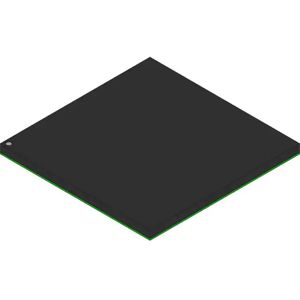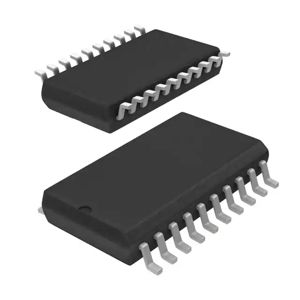
Embedded - PLDs (Programmable Logic Device)
Embedded - PLDs (Programmable Logic Device) - Category Overview
1. Definition of Embedded - PLDs (Programmable Logic Device)
Programmable Logic Devices (PLDs) are a specialized category of Integrated Circuits (ICs) designed to provide flexible digital logic functionality. Unlike fixed-function ICs, PLDs can be programmed and reprogrammed to perform custom logic operations, making them ideal for prototyping, system development, and adaptive hardware solutions. PLDs are widely used in embedded systems, telecommunications, industrial automation, and consumer electronics, where hardware configurability is critical.
2. Types of PLDs in This Category
This classification encompasses several key types of programmable logic devices, including:
- CPLDs (Complex Programmable Logic Devices) Feature non-volatile memory and moderate logic density, suitable for glue logic and control applications.
- FPGAs (Field-Programmable Gate Arrays) High-density, reconfigurable logic blocks with volatile memory, used in high-performance computing and signal processing.
- SPLDs (Simple Programmable Logic Devices) Basic programmable logic, such as PALs (Programmable Array Logic) and GALs (Generic Array Logic), for simpler tasks.
- Configuration PROMs (Programmable Read-Only Memory) Support memory storage for FPGA configurations.
3. Buying Recommendations for PLDs
When selecting a PLD (Programmable Logic Device), consider the following factors:
- Logic Capacity & Performance Match the device s gate count, speed, and I/O requirements to your application.
- Volatility vs. Non-Volatility FPGAs typically require external boot memory, while CPLDs retain configuration without power.
- Development Tools & Ecosystem Ensure vendor-supplied software (e.g., Xilinx Vivado, Intel Quartus) supports your design workflow.
- Power Consumption & Packaging Industrial and portable applications may demand low-power or ruggedized packages.
- Future Reprogrammability Needs Opt for flash-based or SRAM-based PLDs depending on update flexibility.
By carefully evaluating these aspects, engineers and procurement specialists can optimize their PLD selection for reliability, scalability, and cost-efficiency in embedded system designs.
Filter and sort
Categories
ATF22V10C-15XC
IC PLD 10MC 15NS 24TSSOP
ATV750B-15LM/883
IC EPLD 15NS HS 883C 28-LCC
ATF16V8CZ-15SI
IC PLD 8MC 15NS 20SOIC
EPFFI484AA
EPFFI484AA
PALC22V10-25JCB
ELECTRICALLY ERASABLE PAL DEVIC
SN940863N-P
TIBPAL16L8-25CN
ATV750B-15DM/883
IC EPLD 15NS HS 883C 24-CDIP
EP1K50FI484-2
LOADABLE PLD, 0.4NS PBGA484
TIBPAL16L8-20MJ
TIBPAL16L8-20M HIGH-PERFORMANCE
GAL16V8QS-15LNC
GAL16V8 - LOW VOLTAGE E2CMOS PLD
ATV750B-10DM/883
IC EPLD 10NS HS 883C 24-CDIP
JD5438BCA
JM38510/00303BCA LOGIC DEVICE
PAL20R8A2CNS
PLD
XC95144-10PQ160I4307
FLASH PLD, 10NS, 144-CELL
PAL20L10ACFN
PLD
ISPLS-3192-100LB272
HIGH DENSITY PROGRAMMABLE LOGIC
G22V10L15BHR/VI
PROGRAMMABLE LOGIC DEVICES
PEF88500ELV1.1-G
VINAX IVE1000 VECTOR ENGINE
GAL6001B-35LJI
EE PLD, 30NS, PLS-TYPE PQCC28
ATV750BL-15DM/883
IC EPLD 15NS HS 883C 24-CDIP




